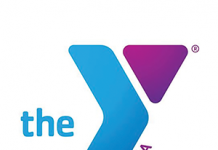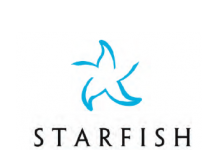 William Davidson established his namesake foundation in 2005, prioritizing Jewish life and education, economic, cultural, and civic vitality of southeastern Michigan and Israel for his philanthropic efforts. This year, the Association of Fundraising Professionals Greater Detroit Chapter has nominated the foundation for the Outstanding Foundation Award. In advance of the AFP’s 2018 Philanthropy Day Awards, on Nov. 8, we sat down with President and CEO of the William Davidson Foundation, Darin McKeever, to discuss the Foundation’s major contributions, which, in part, have rescued many iconic Detroit institutions from financial despair.
William Davidson established his namesake foundation in 2005, prioritizing Jewish life and education, economic, cultural, and civic vitality of southeastern Michigan and Israel for his philanthropic efforts. This year, the Association of Fundraising Professionals Greater Detroit Chapter has nominated the foundation for the Outstanding Foundation Award. In advance of the AFP’s 2018 Philanthropy Day Awards, on Nov. 8, we sat down with President and CEO of the William Davidson Foundation, Darin McKeever, to discuss the Foundation’s major contributions, which, in part, have rescued many iconic Detroit institutions from financial despair.
Give Detroit: Before you became President and CEO of the William Davidson Foundation, you worked with the Bill and Melinda Gates Foundation in Washington, D.C. What drew you to Michigan and, specifically, the William Davidson Foundation?
Darin McKeever: I married into Michigan. My wife is from Ypsilanti and my in-laws are in Washtenaw County. I was also drawn, as so many others are today, to the opportunities to contribute to the renaissance of a great American city. My entire career has been about building organizations that help people realize their own passions and ambitions. I was inspired by the Davidson family and their commitment to building a world-class organization.
In addition to contributing leadership gifts for the Detroit Symphony Orchestra (DSO) to tour throughout the metro Detroit area and Asia, the Foundation has granted $2 million to a fifty-thousand-square-foot addition to the Motown Museum. Why is preserving Detroit’s culture and history central to the Foundation?
We believe that artists, in addition to entrepreneurs, leaders, and educators — some of the other people that we invest in — are alongside those that shape the culture and economy of communities. In the early days of the Foundation, when the aftermath of the 2008 Recession was lingering, our concern was simply about preserving these institutions that are so important to Detroit’s identity and quality of life. It wasn’t long ago that the city was weighing whether the DSO would survive a strike or if the Detroit Institute of Arts should be sold.
Fortunately, we are in a different place now; much of those cultural institutions are stronger, although they can continue to be strengthened. When I think about Motown, I think about music, entrepreneurship, the experiences that we share and what Detroit means to the world. It’s places like the Motown Museum that reminds us of who we once were and help us imagine who we might become.
How has the Foundation’s partnership with Sefaria, the largest free online library of Jewish texts, changed the Jewish educational system and beyond?
The texts that Sefaria has translated and transferred online have been the primary source for much of Jewish ethics, history, identity, and a lot of the debates surround those issues and topics. But they have not always been accessible because they were costly to purchase or were written in another language. Sefaria provides lesson plans for teachers across the country, while also standing as a source for individuals and Rabbis around the world. The Foundation believes that the resources we’ve invested in could have a significant impact over time on Jewish literacy among individuals young and old; and that’s certainly a strong interest of our foundation.
The Foundation supports many causes in Israel, in addition to Southeast Michigan. Do you ever find any crossovers in the Foundation’s philanthropic goals for both of these distinct locations?
Absolutely, we do see parallels. Last year, I had the great privilege to bring leaders of many of southeast Michigan’s arts and cultural institutions on a mission to Israel. What struck us was the similarities between Detroit and Israel, both are so diverse and dynamic. People here and in Israel hustle hard, and know how to wrestle with our differences.
What does the Outstanding Foundation Award mean to the Foundation?
We’re so appreciative of being nominated by not just one grantee, but a number of our partners. I think for an organization that has worked hard to not just have an impact, but earn the trust of who we work with and to try to be thoughtful in the way that we work in community. We have a lot more to do, a lot more to work on, but in many ways, it suggests that we might be on the right path. I’m looking forward to a great party.
Give Detroit sat down with each honoree for more on their work and the causes that inspire them. In the weeks leading up to the Nov. 8 awards, visit hourdetroit.com/give-detroit for a weekly series of interviews with the award winners.
Related: AFP Interview Series: Nominee Karen Smithbauer
|
|
|









